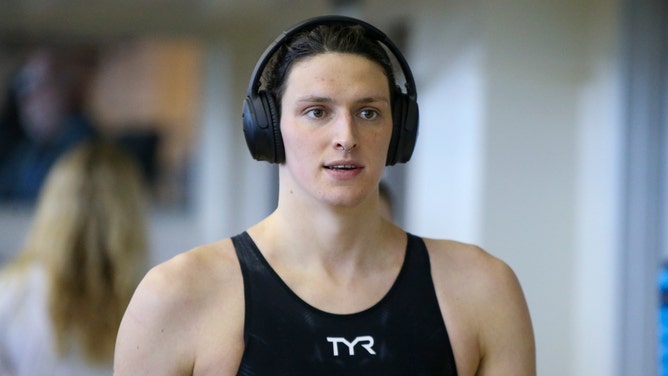NCAA Committee Official William Bock Resigns Over Transgender Athlete Policy
William Bock, one of the officials on the NCAA's Committee on Infractions, resigned his position this past Friday, citing the organization's position on transgender athletes in women's sports.
In his letter, which was sent to Charlie Baker, the President of the NCAA, Bock addressed a number of longstanding issues around the organization's "Transgender Student-Athlete Participation Policy." His resignation comes as conversations around competitive fairness in sports have intensified thanks to males continuously setting records in women's sports.
Bock's letter and willingness to take a stand were applauded by OutKick's Riley Gaines in a post on X, specifically when Bock said these policies amount to discrimination against female athletes.
OutKick spoke to Bock about his letter, the resignation, his intentions behind it and what he believes a more fair policy should be. And his responses should serve as a model for how to think about and deal with issues around transgender athletes.

ATLANTA - Penn swimmer Lia Thomas on the pool deck at the NCAA Swimming/Diving Championships at Georgia Tech on March 19, 2022. Mandatory Credit: Brett Davis-USA TODAY Sports
Transgender Athletes Have Unfair, Immutable Physical Advantages
Bock said that his initial concerns about the NCAA's policies started back in January 2022 when the organization changed in response to the Lia Thomas situation at Penn. While initially skeptical, he stuck around on the NCAA committee for the next two years, hoping that as more people were able to "look at the science and the issues," they'd be able to "make a better decision." He also hoped that with time, he'd be able to discuss with others on the committee, especially important considering they'd never had any issues regarding transgender athletes put in front of them.
However, despite those conversations and discussions taking place, nothing really changed under the previous leadership. Nor did it change under Charlie Baker, despite being in the head job for over a year. Bock said that "it became clear through his testimony before Congress that it wasn't a priority," as well as "through the inaction and lack of change to the rules." That was especially galling to him, considering he sat on a committee that's ostensibly supposed to be about "ethics in sports."
Many Agree, But With Little Action
When asked about his sense on what people, behind closed doors think, Bock said that "no one told [him] that they agreed with the NCAA's policies." Nor did anyone disagree that "you can't bridge the game between male competitive advantage and the level of female performance" through measures like testosterone suppression, which is what the NCAA bases its policy on. Given there was essentially universal agreement that allowing males to compete in female sports was patently unfair, based on the science and evidence, Bock believes the only explanation for it continuing was because of "ideology on college campuses."
Students, faculty and others have a "narrow-minded view on only one part of the equation," Bock said, while "totally ignoring women and their rights under Title IX." But "political pressure" means that "women are having their opportunities taken away, because there's louder voices" overruling fairness "with no scientific evidence behind them."
What Can Be Done About It?
Bock presented a number of evidence-based reasons why women's sports must be protected, specifically that testosterone suppression only minimally impacts performance, and that males enjoy a 10 percent to 60 percent advantage over females depending on the sport. Every year, he said, women's records in things like track and field are broken by 16-and-under males. How can women compete when they're outclassed by high school-aged males?
For those and many other reasons, Bock believes that ultimately athletes should compete in the category aligning with their biological sex. Or if practical, to be in a third category. But it's unacceptable to make "women bear the brunt" of unfair competition, while forcing them to give up opportunities and risk injury. Ultimately, Bock says, it amounts to discrimination against women.
While he's not sure what will come of the letter and his resignation, he's "not overly optimistic" that things will change. Top NCAA officials are smart individuals after all, who likely know that the science and data isn't on their side. But if more people "stand up when they see something unjust" and are "willing to speak up" to protect women, there may be more progress on righting this competitive wrong.
Though his letter was sent five days ago, Bock hasn't gotten a substantive response to the issues raised in his letter. Instead, it's been simplistic, "wish you the best in your future endeavors" texts or emails. If that disinterest in addressing the problems at hand continues, the NCAA may have a lot more public sentiment to contend with.
Hopefully.